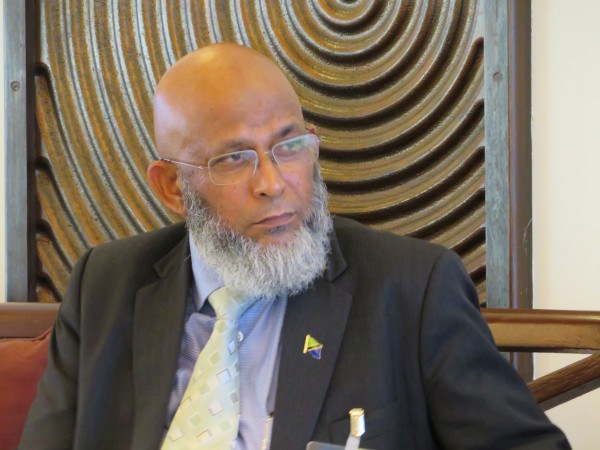Coffee Industry: Challenges and Opportunities
Amir Hamza wears many hats - President of the Tanzanian chapter of the African Fine Coffee Association, Chairman of AMIMZA Coffee company, Quality Champion with MARKUP - and it is because of this wealth of experience he has a unique perspective on the challenges and opportunities facing the coffee industry not only in Tanzania but across Africa too.
When it is harvest time in Tanzania and many African countries what comes to the mind for all producers – especially at this time of COVID19 - is the markets and how they can reach and compete in those markets. AMIMZA is a green bean and instant coffee company working from some of East Africa’s most high-tech processing facilities, and Mr Hamza is predicting a good crop harvest. However, “With coffee shops in Europe closed, the market has struggled. Roasted and ground coffee is therefore at a disadvantage. Globally other countries, like Vietnam, have been able to still export, but the pandemic measures in Africa have seen challenges from production through to transport and export.”
Through his board role with the African Fine Coffee Association he knows what producers have been dealing with. “It’s the landlocked countries that have been impacted the most at this time. Border closures and congestion have hindered exporting of all coffee types. Fewer ships coming to the port and as such exporting has been severely curtailed. It will take some time to bounce back from this, but this is also the time to think about and invest in the future.”
MARKUP and the Quality Champions initiative has been working with regional SMEs in a mentoring capacity, guiding producers in the ways of reaching quality products that taking them to new international markets.
“Certification and quality assurance is so important for coffee growers and exporters today. There are so many programs but companies need to be strategic about which ones will work for them in the marketplace. ISO for example is by far the best for quality assurance, and reaching this certification standard puts you in with the best of the best, showing prospective buyers that your business is world class. Other certifications and accreditation labels are more niche – Rainforest Alliance and Fairtrade for example, and companies need to decide if it’s worth pursuing. Buyers are looking for proof of sustainability and good production techniques first and foremost.”
Beyond quality standards, Mr Hamza is adamant about image and branding. “Producers need to create an image for their coffee, and know the market they are selling to. If it is the tourist market then they need to create packaging for that market, make it attractive and play into the African coffee image.” He acknowledges the steps taken by Tanzania to safeguard the coffee industry, raising import duties on coffee, and dropping import duties on coffee packaging products
Coffee events globally – important networking and educational opportunities for regional producers - have been cancelled or postponed due to the pandemic. Keeping business moving, and networking and mentoring going, has by necessity gone online. The AFCA board have been holding virtual meetings, as has the Tanzanian chapter, with good results and Mr Hamza sees this continuing into the future.
Mr Hamza puts his hopes on an increased free continental trade area within Africa- however, certain trade barriers still exist, such as value-added tax on sales between countries. Infrastructure, he adds, is another challenge toward the realisation of African Coffee trade.
